
The war the British Army found itself fighting on the Western Front in 1914 bore little resemblance to the conflict it had won in South Africa just 15 years earlier.
Although mobile at first, it soon became bogged down in a quagmire of trenches and barbed wire. In such a static conflict, there was no significant role for armoured trains to play. However, by late 1914 the need for mobile heavy artillery that could strike deep behind enemy lines was apparent, and railway guns were soon being considered.
The idea of mounting artillery on trains had been tried before. In 1882, during the AngloEgyptian war, the British had mounted naval guns on rail trucks to serve as heavy artillery support and had done the same thing with coastal defence guns during the Second Boer War.
In Europe, meanwhile, the French became the first nation to purposely design and build a railway gun. By 1900, its army had 48 fiveand six-inch guns mounted on narrow gauge wagons called Peigné-Canet carriages in service as fortress artillery at Verdun, Toul, Epinal and Belfort.
By the outbreak of war, however, no army possessed a heavy weapon on wheels that could reach deep behind enemy lines. This meant the earliest examples of this new breed of gun had to be improvised. The French were first again when, in the autumn of 1914, they mounted an obsolete coastal defence gun onto existing commercial rolling stock.
The British, Germans and Americans followed suit and, by the time the war ended, railway guns were in operation all along the Western Front. They appeared on other fronts, too, with both the Italians and Russians developing them, with a total of 600 eventually involved in the conflict.
Diese Geschichte stammt aus der Issue 113-Ausgabe von History of War.
Starten Sie Ihre 7-tägige kostenlose Testversion von Magzter GOLD, um auf Tausende kuratierte Premium-Storys sowie über 8.000 Zeitschriften und Zeitungen zuzugreifen.
Bereits Abonnent ? Anmelden
Diese Geschichte stammt aus der Issue 113-Ausgabe von History of War.
Starten Sie Ihre 7-tägige kostenlose Testversion von Magzter GOLD, um auf Tausende kuratierte Premium-Storys sowie über 8.000 Zeitschriften und Zeitungen zuzugreifen.
Bereits Abonnent? Anmelden
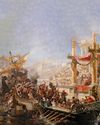
NAUMACHIA TRUTH BEHIND ROME'S GLADIATOR SEA BATTLES
In their quest for evermore novel and bloody entertainment, the Romans staged enormous naval fights on artificial lakes
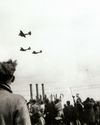
OPERATION MANNA
In late April 1945, millions of Dutch civilians were starving as Nazi retribution for the failed Operation Market Garden cut off supplies. eet as In response, Allied bombers launched a risky mission to air-drop food
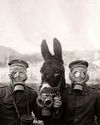
GASSING HITLER
Just a month before the end of WWI, the future Fuhrer was blinded by a British shell and invalided away from the frontline. Over a century later, has the artillery brigade that launched the fateful attack finally been identified?
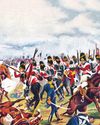
SALAMANCA
After years of largely defensive campaigning, Lieutenant General Arthur Wellesley went on the offensive against a French invasion of Andalusia

HUMBERT 'ROCKY'VERSACE
Early in the Vietnam War, a dedicated US Special Forces officer defied his merciless Viet Cong captors and inspired his fellow POWs to survive
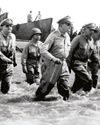
LEYTE 1944 SINKING THE RISING SUN
One of the more difficult island campaigns in WWII's Pacific Theatre saw a brutal months-long fight that exhausted Japan’s military strength

MAD DAWN
How technology transformed strategic thinking and military doctrine from the Cold War to the current day
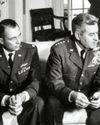
BRUSHES WITH ARMAGEDDON
Humanity came close to self-annihilation with the Cuban Missile Crisis, Broken Arrows’ and other nuclear near misses
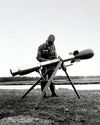
THE DEADLY RACE
How the road to peace led to an arms contest between the USA and USSR, with prototypes, proliferation and the world’s biggest bomb

THE MANHATTAN PROJECT
Einstein, Oppenheimer and the race to beat Hitler to the bomb. How a science project in the desert helped win a war